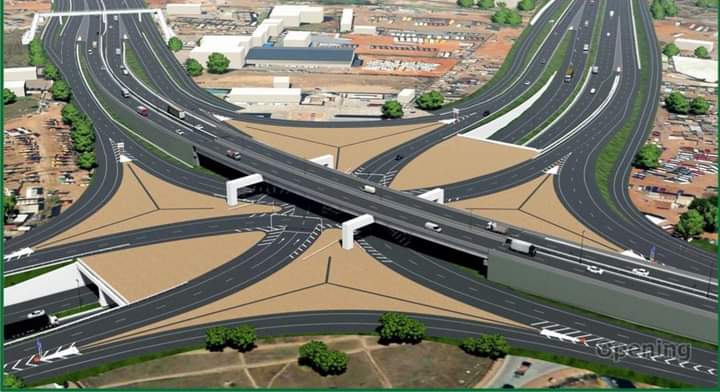$750m Afreximbank Loan: President Akufo-Addo Highlights Earmarked Projects (Full List)
OpenLife Nigeria reports that as citizens analysis the rationale behind a fresh $750m loan from Afreximbank by the government of Ghana, the President, Nana Akufo-Addo has highlighted the infrastructural projects tied to the loan.
The projects are: Ofankor Nsawam Road – $200M;
Ejisu Konongo Road – $75M; Completion of Nsawam Apedwo Road – $10M; Suame Interchange – $47M.
Others are the completion of Flower Pot Interchange – $35M; completion of Sofoline Interchange – 35M;
Kwabenya Peduase Road- $10M and
completion of Eastern Corridor Lots 5 and 6 – $70M.
The list includes completion of Enkyikrom Adawso Road – $93M and purchase of rolling stock and spare parts – $ $30M as well as construction of Stadium – $140M.
Reacting, Allen Chileman, a social media commentator said “This economic model for development is not good as it falls to improve the living standards by creating worth. We need to fund through loans productive sectors like Agriculture and energy but roads we should be able to build roads through govt infrastructure funds or public private model.”
However, it would be recalled that Ghana lawmakers have approved a plan by the government to borrow up to $750 million from the African Export-Import Bank for the 2022 budget.
The vote by the nation’s hung parliament removes a major hurdle for President Nana Akufo-Addo’s government to press on with budget projects and stabilize finances after losing access to the international capital market this year.
The facility is the first part of the $1 billion in loans that the government’s looking to wind up this July for the budget.
Lawmakers are still studying the second part, syndicated loans worth $250 million from other international banks, Kwaku Kwarteng, chairman of the finance committee in parliament, said.
The loan proceeds are expected to make room for West Africa’s second-biggest economy to reduce domestic borrowing and put it in a stronger position to support the local currency, which has lost 25.6% of its value to the dollar this year, making it Africa’s worst performer.
Ghana reversed course to seek a funded programme with the International Monetary Fund earlier this July after a decision early in the year to cut budget expenditures by as much as 30% failed to stem a sell-off in its international bonds.
The yield on Ghana dollar bonds maturing in 2032 declined 62 basis points on Wednesday to 21.2%. The premium investors demand over US Treasuries to hold Ghana debt currently stands at 1,894 basis points, according to JPMorgan Chase & Co. indexes, effectively locking the world’s second-biggest cocoa producer out of the Eurobond market.
Ghana’s recent debt woes were caused by a sweeping clean-up of the banking sector, energy-sector loans, the impact of the coronavirus pandemic and the fallout from Russia’s invasion of Ukraine, driving its debt ratio to 78% of gross domestic product at the end of March from 62.5% five years ago. The country hopes to receive about $1.5 billion from the IMF program to enhance the home-grown policies it is already implementing.






